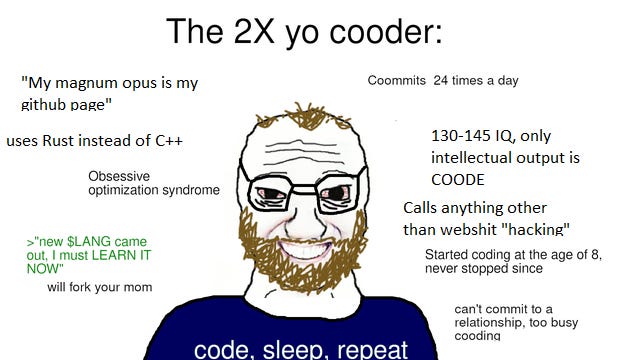Computers as IQ shredders

🌈 Abstract
The article discusses the issue of "Computers as IQ Shredders" - how many of the brightest minds are getting addicted to intellectual computer games and projects instead of pursuing real-world knowledge and research that could further human progress.
🙋 Q&A
[01] Computers as IQ Shredders
1. What are the key points made in the article about how computers can act as "IQ shredders"?
- The article argues that many high-IQ people are spending their time coding "block games" and other computer projects to prove their programming skills, rather than pursuing more meaningful intellectual pursuits that could further human knowledge.
- It describes two types of "IQ shredders" - Type I that reduce the overall intelligence of future generations by discouraging reproduction, and Type II that distract intelligent people from real-world research and discovery.
- The article suggests that while early computer technology development was an impressive intellectual feat, much of the current programming and coding work is just "distractions" that produce little of value.
2. What examples does the author provide to illustrate the "IQ shredder" problem?
- The author describes spending time creating a "wallhack" for an old Star Wars video game as an example of the kind of intellectually stimulating but ultimately unproductive computer work that high-IQ people can get drawn into.
- The author also mentions "computersoy videos" on YouTube featuring people doing "complicated wholesome chungus 6,000,000 codesoy projects" that make them feel smart, but don't actually advance human knowledge.
3. How does the author view the value of different creative pursuits like making movies, plays, and music compared to making video games?
- The author suggests there is not much fundamental difference between spending time making a video game versus other creative works like movies, plays, and music. The implication is that all of these can be considered "virtual drugs" or "distractions" that don't necessarily further intellectual progress.
[02] Comparison to Other "IQ Shredders"
1. How does the author compare computer-related "IQ shredders" to other types like Singapore and San Francisco?
- The article states that places like Singapore and San Francisco are both Type I IQ shredders (reducing intelligence in future generations through low fertility rates) as well as Type II IQ shredders (distracting intelligent people with the "intellectual Matrix" and "Tlon that are computers").
- The key distinction is that while Singapore and San Francisco may adequately use the intelligence of those who go there, they also deprive the next generation of that intelligence through reduced fertility.
2. What is the author's view on the overall impact of these different types of "IQ shredders"?
- The author sees both Type I and Type II IQ shredders as very dangerous for humanity in the long run, as they either directly reduce the intelligence of future generations or distract the brightest minds from pursuits that could truly advance human knowledge and progress.